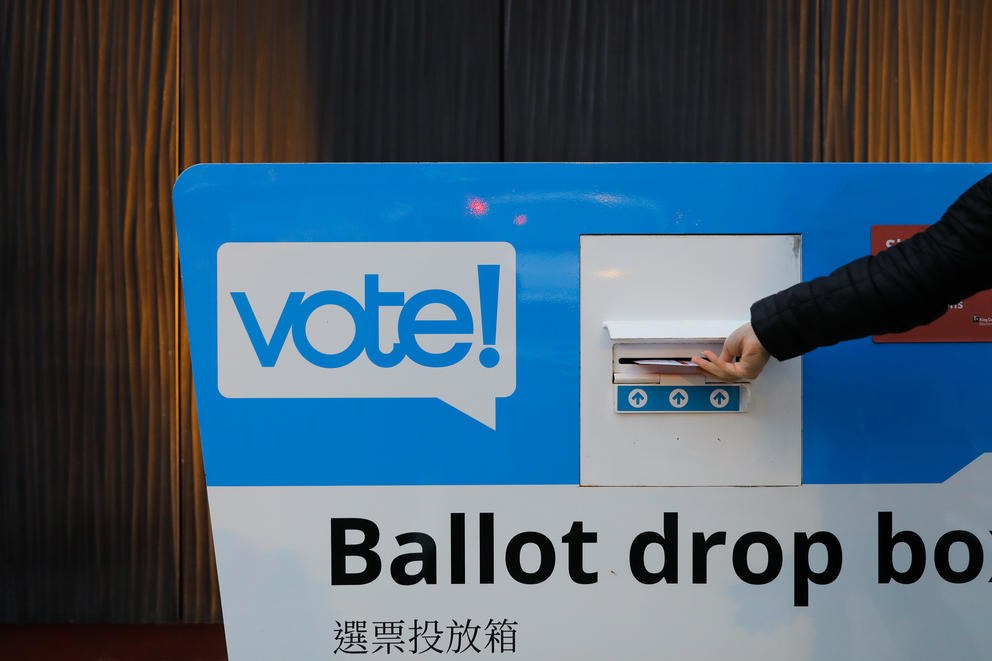Judge rules WA tax initiatives need fiscal impact info on ballots

Voters drop off ballots at the White Center Library ballot box on voting day, Tuesday, Nov. 7, 2023. (Genna Martin/Cascade PBS)
A Thurston County judge ruled Friday that three initiatives on the November ballot must include fiscal impact statements of 10 to 15 words.
State Republicans filed a lawsuit to prevent those impact statements from being attached to measures to repeal the state’s carbon pricing system, to repeal the state’s capital gains tax, and to make participation voluntary in the new state long-term insurance care program.
Judge Allyson Zipp ruled against the GOP request from Rep. Jim Walsh, R-Aberdeen, and Deanna Martinez, chairwoman of the Mainstream Republicans of Washington, after hearing very technical pro and con arguments in court on Friday morning.
Walsh and Martinez argued that, as they interpreted the requirements of a 2022 state law, the ballot initiatives don’t need fiscal statements because they don’t affect taxes and fees. The Washington attorney general’s and secretary of state’s advocates argued the intent of the law is to lean toward requiring fiscal impact statements. Zipp agreed with the state government’s arguments.
After the ruling, Walsh called Zipp’s ruling “disappointing, but not surprising.” He said no decision has been made yet whether to appeal.
In a news release, Aaron Ostrom, executive director of FUSE Washington, said, “Their lawsuit has one inexcusable purpose: to hide the truth about the impacts of these initiatives from voters.”
“Their lawsuit is a deceptive scam to save misleading initiatives that would cut taxes for corporations and the wealthy while shifting the bill onto low and middle income families,” Ostrom wrote.







